How To Choose A Digital Marketing Agency?- A Complete Guide
Selecting the right digital marketing agency is a pivotal decision that can significantly impact the success of your business. With countless agencies vying for your attention, navigating this crucial choice wisely is essential. But how to choose a digital marketing agency?
Well, to choose a digital marketing agency, assess your goals, review their expertise and industry experience, request case studies and references, evaluate transparency and ensure pricing aligns with your budget. Effective communication and shared values are also essential.
This blog post will walk you through the essential steps, considerations, and other related information to make an informed decision.
What Is A Digital Marketing Agency?

A digital marketing agency promotes businesses and their products or services through digital channels. These digital mediums include the Internet, mobile devices, social networks, and search engines. Emerging alongside the Internet in the 1990s, digital marketing shares core marketing principles with traditional advertising but leverages the unique capabilities of the digital landscape.
Digital marketing agencies help businesses connect with their target audiences, gather insights into consumer behavior, and create effective online strategies. While traditional and digital marketing methods are often used in tandem, digital marketing offers distinct advantages regarding reach, precision, and measurement. However, challenges such as unconscious biases and evolving algorithms must also be navigated in digital marketing. A digital marketing agency is pivotal in helping businesses thrive in the digital age.
If you want to know more about what is Digital Marketing Agency then you can read our blog post then you will get a good idea.
What Does A Digital Marketing Agency Do?

A digital marketing agency plays a pivotal role in helping businesses navigate the complex and ever-evolving landscape of online marketing. Here’s a breakdown of what a digital marketing agency does:
Market Research and Analysis
Digital marketing agencies begin by studying the market and conducting in-depth research. They analyze your target audience, their online behavior, preferences, and the platforms they use. This research helps in creating a precise and data-driven marketing strategy.
Strategic Planning
Once armed with market insights, agencies develop a comprehensive marketing plan tailored to your business goals. They provide guidance and expertise to ensure a focused and effective approach to marketing. Drawing from their diverse client experiences, agencies can recommend strategies that have proven successful across various industries.
Omnichannel Marketing
A key objective of digital marketing is to provide a seamless and integrated customer experience. Reputable agencies employ omnichannel marketing strategies that unify the customer journey across various touchpoints, such as social media, email, websites, and more.
Content Creation
Content is the heart of digital marketing. Agencies create high-quality content that resonates with your target audience. This includes text-based content, visuals like images and videos, and interactive content. Content is strategically used across marketing channels to engage and inform your audience.
Social Media Strategy
Social media is a vital component of digital marketing. Agencies help businesses establish a strong presence on platforms like Facebook, Instagram, Twitter, and LinkedIn. They guide maximizing the impact of social media, utilizing features like live streaming (e.g., Instagram Live) for product showcases, interviews, announcements, and more.
Data-Driven Decision Making
Digital marketing agencies prioritize data collection and analysis. They use analytics tools to measure the performance of marketing campaigns. By tracking key metrics, agencies can refine strategies over time, optimize ROI, reduce costs, and enhance profitability. Data-driven insights are essential for making informed decisions and improving customer satisfaction.
Different Types Of Digital Marketing Channels

Digital marketing offers diverse channels to help businesses raise awareness, engage with audiences, and drive growth. These channels provide unique opportunities to connect with customers and promote products or services. Here are eight popular digital marketing channels:
1. CPC (Cost Per Click) Marketing:
- CPC marketing, called pay-per-click (PPC) advertising, allows marketers to target online users through search engines and social media platforms like Google, Bing, LinkedIn, Twitter, Pinterest, and Facebook.
- Advertisers use keywords and demographic information to reach specific audiences and pay only when users click on their ads.
2. Website Marketing:
- A business’s website is at the core of all digital marketing efforts. It is a central platform for showcasing the brand, products, or services.
- Effective website marketing includes optimizing site performance, mobile-friendliness, and user experience to engage and retain visitors.
3. Affiliate Marketing:
- Affiliate marketing, a long-standing advertising method, enables influential individuals or websites to earn commissions by promoting the products or services of others.
- Large corporations like Amazon offer affiliate programs that reward affiliates for driving sales or leads through their promotional efforts.
4. Email Marketing:
- Email marketing remains a powerful tool for online advertising. It involves sending targeted messages to subscribers interested in a business’s offerings.
- Marketers build email lists through various digital channels and use email marketing to nurture leads and convert them into customers.
5. SMM (Social Media Marketing):
- Social media marketing aims to increase brand recognition and credibility through platforms like Facebook, Twitter, Instagram, and LinkedIn.
- Marketers use social media to engage with audiences, promote products or services, and run advertising campaigns, including promoted posts and tweets.
6. Content Marketing:
- Content marketing focuses on creating and distributing valuable content, such as articles, videos, infographics, and more, to attract and engage new customers.
- Content is typically shared on websites and promoted through various channels, including social media, email marketing, SEO, and PPC.
7. Video Marketing:
- Video marketing leverages platforms like YouTube, Facebook Videos, Instagram, and TikTok to engage audiences through video content.
- Videos are used for product demonstrations, educational content, brand storytelling, and more and are integrated into SEO, content marketing, and social media strategies.
8. SMS Messaging:
- SMS messaging, or text messages, is increasingly used by businesses and organizations to inform customers about offers, promotions, and opportunities.
- Political campaigns and charitable efforts also utilize SMS for communication and fundraising, making it a versatile marketing channel.
Types Of The Digital Marketing Agency

Digital marketing agencies come in various forms, each specializing in different aspects of online marketing. Here are nine main types of digital marketing agencies, each with its unique focus and expertise:
Full-Service Digital Marketing Agency
Full-service agencies offer a comprehensive range of digital marketing services, covering everything from SEO and content marketing to social media management and pay-per-click advertising. They provide end-to-end solutions for businesses looking to establish a strong online presence.
SEO (Search Engine Optimization) Agency
SEO agencies optimize websites to improve their visibility in search engine results. They employ keyword research, on-page, and off-page optimization, and link building to help clients rank higher in search engine rankings.
Content Marketing Agency
Content marketing agencies specialize in creating high-quality content, including blog posts, articles, videos, infographics, and more. They aim to engage audiences, drive traffic, and improve brand authority through content creation and distribution.
Social Media Marketing Agency
Social media marketing agencies excel in managing and growing a brand’s presence on various social media platforms, including Facebook, Twitter, Instagram, LinkedIn, and TikTok. They create content, run ad campaigns, and engage with followers to build a strong social media presence.
PPC (Pay-Per-Click) Agency
PPC agencies manage pay-per-click advertising campaigns on platforms like Google Ads and Bing Ads. They create and optimize ads, manage budgets, and target specific keywords to generate leads or sales for their clients.
Email Marketing Agency
Email marketing agencies specialize in crafting and executing email campaigns to nurture leads, retain customers, and drive conversions. They segment email lists, design visually appealing emails, and track campaign performance.
Web Design and Development Agency
Web design and development agencies focus on creating and maintaining visually appealing, user-friendly, and optimized websites for performance. They ensure that websites are responsive, load quickly, and offer an excellent user experience.
Influencer Marketing Agency
Influencer marketing agencies connect brands with social media influencers and content creators who can promote their products or services to followers. They manage influencer partnerships, campaigns, and performance tracking.
Analytics and Data-Driven Agency
Analytics-focused agencies collect, analyze, and interpret data to make data-driven marketing decisions. They track key metrics, provide insights, and optimize campaigns for better ROI.
How To Choose A Digital Marketing Agency?

Define Your Goals
Before choosing a digital marketing agency, it’s essential to have a clear understanding of your marketing goals. Define what you want to achieve with your digital marketing efforts. Are you looking to increase website traffic, generate leads, boost online sales, or improve brand awareness? Having well-defined goals will help you narrow your agency options and ensure you select one that aligns with your objectives.
Clearly outlining your goals also provides a basis for measuring the agency’s success. When you have specific, measurable, and time-bound goals in place, you can evaluate the agency’s performance and the return on investment (ROI) they deliver.
Assess Agency Specialization
Not all digital marketing agencies offer the same services or specialize in the areas that align with your goals. Assess the agency’s specialization and expertise to determine if they can effectively address your unique needs. Here are some key areas to consider:
- Industry Focus: Some agencies specialize in particular industries, such as healthcare, e-commerce, or technology. Choosing an agency familiar with your industry can provide valuable insights and strategies tailored to your niche.
- Service Offerings: Digital marketing encompasses many services, including SEO, content marketing, social media management, pay-per-click advertising, email marketing, and more. Ensure the agency offers the specific services required to achieve your goals.
- Geographic Focus: If your target audience is primarily local or international, consider whether the agency effectively has experience in targeting the desired geographic regions.
- Track Record: Evaluate the agency’s track record and past successes in delivering results similar to what you aim to achieve. Request case studies or examples of projects they have worked on.
- Team Expertise: Assess the expertise of the agency’s team members, including their certifications, qualifications, and experience in relevant digital marketing disciplines.
- Innovative Solutions: Determine if the agency stays updated with digital marketing trends and technologies. An agency that embraces innovation can provide cutting-edge solutions for your campaigns.
Check Industry Experience
When selecting a digital marketing agency, industry experience is a crucial factor to consider. An agency with a deep understanding of your industry is better equipped to create effective marketing strategies that resonate with your target audience and meet your specific needs. Here’s why industry experience matters:
- Target Audience Understanding: Industry-specific agencies know your target audience’s preferences, behaviors, and pain points. This insight allows them to craft messages and campaigns more likely to engage and convert prospects into customers.
- Competitor Insights: Agencies experienced in your industry will likely have worked with competitors or similar businesses. This exposure helps them understand the competitive landscape, enabling them to develop strategies that differentiate your brand and give you a competitive edge.
- Regulatory Knowledge: Certain industries like healthcare or finance have stringent marketing and advertising regulations. An agency with industry experience knows these regulations and can ensure compliance, minimizing the risk of legal issues.
- Niche Expertise: Some industries have unique challenges and nuances that require specialized knowledge. Industry-specific agencies often have expertise in addressing these challenges, optimizing e-commerce conversion rates, or generating leads for B2B technology companies.
Review Case Studies and Portfolio
To gauge the effectiveness and capabilities of a digital marketing agency, it’s essential to review its case studies and portfolio. These provide tangible evidence of their past work and successes. Here’s why this step is crucial:
- Proof of Performance: Case studies showcase real-world examples of the agency’s ability to deliver results. Look for case studies that align with your goals and objectives to ensure relevance.
- Diverse Skill Set: A diverse portfolio that includes various digital marketing services demonstrates the agency’s versatility and expertise. It indicates their capacity to handle different aspects of your marketing needs.
- Client Success Stories: Reading about the experiences of other clients in your industry or with similar challenges can provide insights into how the agency collaborates with clients and the impact they’ve had on businesses like yours.
- Metrics and Results: Case studies should include measurable outcomes, such as increased website traffic, higher conversion rates, or improved ROI. These metrics allow you to assess the agency’s ability to deliver tangible results.
Ask for Client References
When considering a digital marketing agency, seeking client references is a prudent step to gain insight into the agency’s performance, professionalism, and client satisfaction. Here’s why it’s essential:
- Real-World Feedback: Client references provide firsthand feedback from businesses that have worked with the agency. They can share their experiences, challenges, and outcomes, helping you make an informed decision.
- Client Retention: Agencies with satisfied clients are likelier to have long-lasting relationships. By contacting references, you can gauge the agency’s ability to maintain client trust and deliver ongoing value.
- Specific Insights: Speaking directly with previous or current clients allows you to ask specific questions about their projects, results achieved, and the agency’s strengths and weaknesses.
Evaluate Transparency and Communication
Effective communication and transparency are fundamental to a successful partnership with a digital marketing agency. Here’s how to assess these crucial aspects:
- Communication Channels: Determine how the agency communicates with clients. Do they offer multiple channels for communication, such as email, phone, and video conferences? Ensure that their communication methods align with your preferences.
- Response Time: Evaluate the agency’s responsiveness. A reliable agency should respond promptly to inquiries, requests, and concerns. Delays in communication can hinder progress.
- Transparency in Reporting: Ask about the agency’s reporting practices. They should provide regular, detailed reports on campaign performance, including key metrics and progress toward goals. Transparency in reporting ensures you’re well-informed about the results of your investment.
- Project Updates: Assess how often the agency updates project status and milestones. Regular updates help you stay informed about the progress of your marketing campaigns.
Consider Budget and Pricing
Budget plays a significant role in choosing a digital marketing agency, and aligning your financial resources with your marketing goals is essential. Here are key considerations:
- Affordability: Determine your budget constraints and seek an agency that offers services within your financial comfort zone. However, balance cost considerations with the potential return on investment (ROI) that the agency can deliver.
- Transparency: Request a clear breakdown of pricing and services in the proposed packages. Ensure no hidden fees or unexpected costs could impact your budget.
- ROI Expectations: Discuss your ROI expectations with the agency. A reputable agency should provide insights into how their services can generate a positive ROI for your business.
Assess Team Expertise
The expertise and skills of the agency’s team are critical factors in determining their ability to deliver effective digital marketing campaigns. Here’s what to look for:
- Certifications and Training: Inquire about the team’s certifications and training in relevant digital marketing disciplines, such as Google Ads, SEO, social media, and content marketing. Certifications demonstrate expertise and commitment to staying updated.
- Experience: Assess the collective experience of the agency’s team members. A team with a diverse skill set and extensive experience can offer well-rounded strategies that address various aspects of your marketing goals.
- Portfolio: Review the agency’s portfolio to see examples of their past work and campaigns. The portfolio should showcase successful projects demonstrating their expertise in different areas.
- Innovation: Evaluate the agency’s innovation approach and stay current with industry trends and technologies. A team that embraces innovation can provide forward-thinking strategies.
Understand Contract Terms
Understanding contract terms is crucial when choosing a digital marketing agency to ensure a transparent and mutually beneficial partnership. Here’s why it matters:
- Scope of Services: Review the contract to understand the scope of services the agency will provide. Ensure that the services align with your marketing goals and objectives. Any ambiguities should be clarified before signing.
- Duration and Termination: Determine the contract duration and the terms for termination. Some contracts may be long-term, while others are project-based. Be aware of any penalties or notice periods associated with early termination.
- Pricing and Payment: Carefully examine pricing details, including payment schedules, invoicing procedures, and any additional costs. Understand the agency’s billing cycle and when payments are due.
- Performance Metrics: The contract should specify key performance indicators (KPIs) and how success will be measured. This ensures that both parties have clear expectations regarding campaign performance and outcomes.
How To Collaborate With A Web Marketing Agency?

Collaborating effectively with a web marketing agency is essential for achieving digital marketing goals. Here are seven ways to ensure a successful partnership:
- Set Clear Objectives: Begin by defining your marketing objectives and expectations. Communicate your business goals, target audience, and desired outcomes to the agency. This clarity helps align their strategies with your vision.
- Open Communication: Maintain open and transparent communication with the agency. Regularly share updates, feedback, and business or marketing priorities changes. Effective communication fosters a collaborative environment.
- Provide Access to Insights: Share relevant insights about your industry, competitors, and customer behavior. This information empowers the agency to tailor their strategies and campaigns to your specific market.
- Collaborative Planning: Involve the agency in the planning process. Collaborate on campaign ideas, content creation, and marketing strategies. Their expertise can contribute valuable insights to your overall marketing plan.
- Review and Feedback: Regularly review campaign performance and provide constructive feedback. Discuss areas of improvement and optimization based on data and results. A feedback loop ensures continuous refinement of strategies.
- Access to Resources: Ensure the agency has access to the necessary resources, such as website analytics, advertising accounts, and creative assets. Efficient access streamlines their work and helps deliver results faster.
- Trust Their Expertise: Trust the agency’s expertise and experience. They are professionals in the field and should deeply understand digital marketing trends and best practices. Be open to their recommendations and strategies.
Benefits Of Hiring An Agency Vs In-House

Here are the benefits of hiring a marketing agency compared to maintaining an in-house team:
Cost-Efficiency
One of the primary advantages of hiring a marketing agency is cost efficiency. Agencies often offer more affordable solutions compared to maintaining an in-house team. You can avoid the overhead costs associated with salaries, benefits, office space, and ongoing training for in-house employees. Agencies typically provide a transparent pricing structure, making budgeting for your marketing efforts easier.
Expertise and Specialization
Marketing agencies are staffed with professionals specializing in various aspects of digital marketing. These experts have extensive knowledge and experience in search engine optimization (SEO), pay-per-click advertising (PPC), content creation, social media management, and more. Working with an agency gives you access to a team with diverse skills tailored to your specific marketing needs.
Access to Cutting-Edge Tools and Technology
To stay competitive, marketing agencies invest in the latest marketing tools, software, and technologies. They have access to premium analytics platforms, keyword research tools, marketing automation software, and other resources that may be costly for individual businesses to acquire. Leveraging these tools allows agencies to deliver data-driven strategies and better campaign results.
Scalability and Flexibility
Marketing agencies offer scalability and flexibility to adapt to your business’s changing needs. Whether you require a comprehensive marketing strategy or specific campaign support, agencies can adjust their services accordingly. This adaptability is especially valuable during seasonal fluctuations or when launching new products or services.
Access to Diverse Perspectives
Agencies work with a variety of clients across different industries. This exposure provides them with a wealth of knowledge and diverse perspectives. They can apply insights and strategies that have proven successful in various markets to benefit your business.
Time-Saving
Outsourcing your marketing efforts to an agency saves time and allows you to focus on core business activities. Agencies handle campaign planning, execution, monitoring, and optimization, freeing up your internal resources to concentrate on other essential tasks.
Measurable Results and Accountability
Marketing agencies are accountable for delivering measurable results. They set clear objectives, track key performance indicators (KPIs), and provide detailed reports on campaign performance. This transparency enables you to assess the effectiveness of your marketing investment and make data-driven decisions.
Staying Current with Trends
Marketing agencies stay up-to-date with industry trends, algorithm changes, and best practices. They adapt their strategies to incorporate the latest developments in digital marketing, ensuring that your campaigns remain competitive and relevant.
Reduced Risk
Marketing agencies bring expertise that reduces the risk of costly mistakes in your marketing efforts. Their experience helps you avoid common pitfalls and navigate challenges effectively.
Frequently Asked Questions
What Should I Consider When Selecting A Digital Marketing Agency?
When choosing a digital marketing agency, consider factors such as your specific marketing goals, the agency’s expertise, industry experience, transparency in pricing and communication, and their ability to provide case studies and references. It’s essential to align the agency’s offerings with your business objectives.
How Can I Assess An Agency’s Expertise?
To assess an agency’s expertise, review its portfolio of past work, including case studies and client testimonials. Ask about team certifications and experience in relevant digital marketing disciplines like SEO, PPC, social media, and content marketing. Industry awards and recognition can also be indicators of expertise.
What Questions Should I Ask During The Selection Process?
During the selection process, ask about the agency’s approach to campaign planning, how they measure success, their communication and reporting processes, and their strategies for staying updated with industry trends. Additionally, inquire about their pricing structure, contract terms, and any hidden fees.
Is Industry Experience Important When Choosing An Agency?
Industry experience can be crucial, as it often comes with insights into industry-specific challenges, target audience behaviors, and compliance with regulations. An agency with knowledge of your industry can create tailored strategies that yield better results.
How Do I Ensure Transparency With The Agency?
To ensure transparency:
- Request a detailed breakdown of pricing and services, including any additional cost.
- . Establish clear communication channels and expectations for reporting and update
- . Discuss key performance indicators (KPIs) and how success will be measured to maintain transparency in campaign progress.
Final Discussion
Building a successful partnership with a digital marketing agency is not just about outsourcing tasks; it’s about collaborating with experts who understand your vision and can bring it to life digitally by carefully evaluating their expertise, industry knowledge, and commitment to transparent communication.
In this ever-evolving landscape, choosing the right agency can set the stage for remarkable growth, increased brand visibility, and tangible results. Take the time to choose wisely, and let your digital journey begin with confidence.
Read More Article:

















































